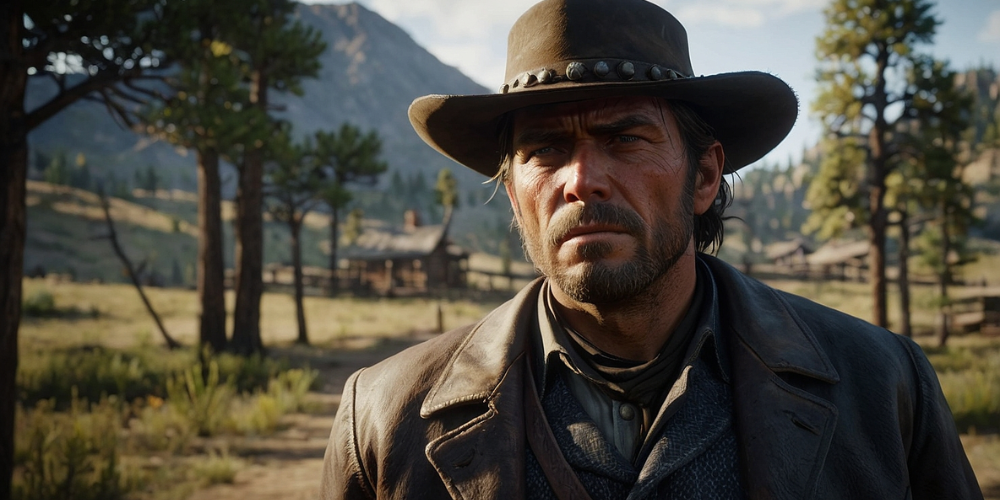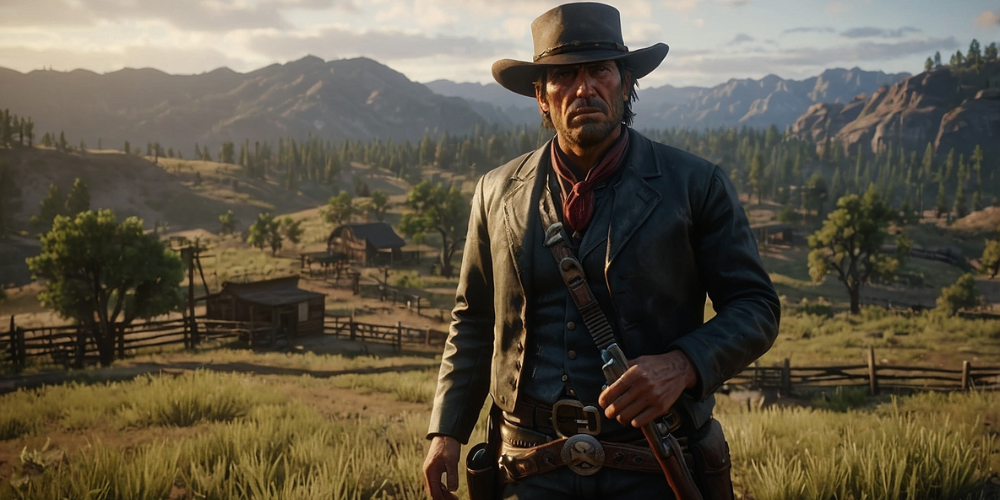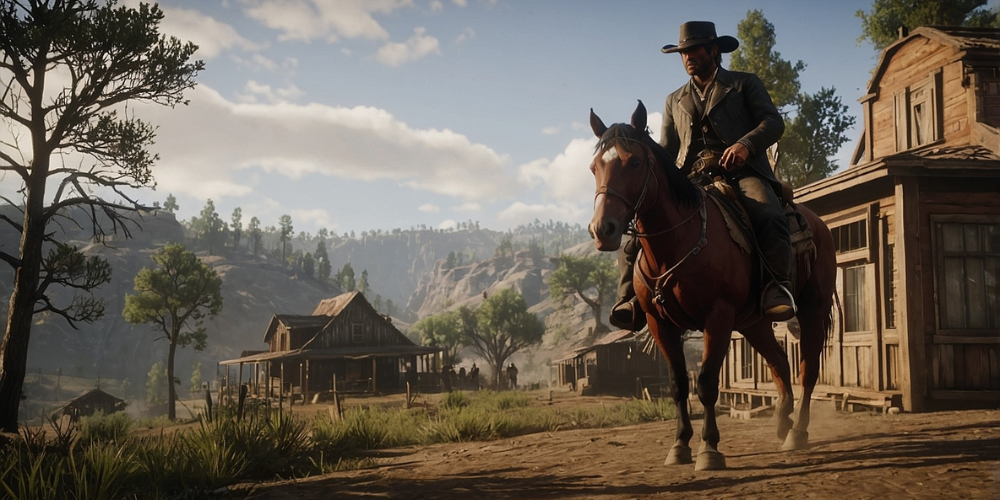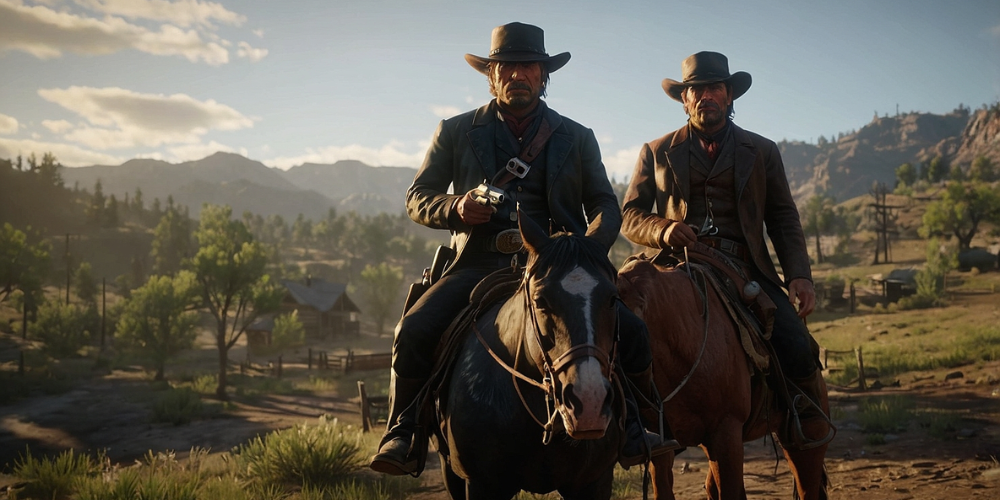Character Development in Red Dead Redemption 2
- Oct 11, 2024
- 22

As I sat down to play Red Dead Redemption 2, I was immediately struck by the richness of the world and its characters. From the moment I began the story, I felt transported into a bygone era, where choices had weight and morality was blurred. The protagonist, Arthur Morgan, served as my lens into this vast, intricate tapestry of life, influencing how I interacted with the world around me.
Arthur's Background and Motivation
Arthur Morgan isn’t just a gunslinger; he's a man shaped by his environment and the choices he made. Raised within the Van der Linde gang, he’s loyal to Dutch, the gang leader, and driven by the need for survival. As I played, I began to understand his motivations, influenced by familial bonds within a gang that resembled a makeshift family. The complexity of his personal history revealed itself through captivating storylines, interactions, and missions.
Moral Compass and Decision Making
What truly captivated me was Arthur's moral compass, which is affected by my choices throughout the game. Every interaction, from rescuing strangers to committing robberies, forced me to confront the question of morality. Would I choose to help a fellow outlaw or succumb to the allure of self-interest? Each decision reshaped Arthur's character and my perception of him as the narrative unfolded.

The Impact of the Setting
The meticulous detail in the game’s setting played a significant role in Arthur’s development. The sweeping plains, rugged mountains, and bustling towns reflected the transformation happening within him. As I explored these landscapes, I also explored Arthur’s psyche. With each bounty, I hunted or gunfight I navigated, I felt the weight of the world pressing down on him, forcing me to consider the outcome of every skirmish and the lives affected by my actions.
Interactions with Other Characters
As Arthur's journey continued, I found that my relationships with other characters revealed additional layers of his personality. Characters like John Marston, Dutch Van der Linde, and Sadie Adler had profound impacts on his character arc. The camaraderie shared with John made me nostalgic, evoking a sense of hope for redemption amidst chaos. Conversely, Dutch's increasingly erratic behavior filled me with tension, driving a wedge between Arthur and his once-idolized leader.
Inner Conflict and Redemption
One of the most poignant aspects of Arthur’s development was his internal struggle. I became acutely aware of the conflict brewing within him as he grappled with his choices. The game’s narrative expertly navigated themes of guilt and regret. Arthur is not just a hardened outlaw; he possesses a conscience that begins to weigh heavily on him. This shift became palpable to me, prompting profound reflections on morality, justice, and redemption.

The Meaning of Loyalty
Loyalty is a recurring theme in Arthur’s life. As I maneuvered through missions that tested my allegiance to the gang, I pondered the true nature of loyalty. The unconditional support towards Dutch, despite growing doubts about his leadership, illustrated the complexities of believing in a person over doing what is right. My investment in this theme prompted me to consider what I might sacrifice for loyalty and whether it came at too high a cost.
Friendships and Bonds
The bonds Arthur formed throughout the game held significant weight in his character arc. Characters like Hosea, who often acted as the voice of reason, and Sadie, who offered a fierce determination, brought out different aspects of Arthur. The friendships deepened my emotional connection with him; I felt the highs of his camaraderie and the lows of loss. Each partnership I nurtured added depth to Arthur and richly colored his narrative journey.
Growth Through Adversity
Arthur’s development was markedly influenced by the numerous trials he faced. The gang's decline mirrored his internal descent, forcing him to confront his mortality and purpose. Challenges grew more daunting, from rival gangs to mounting law enforcement pressure, each provoking personal growth. I realized that it was through adversity that Arthur's true nature emerged—resilience coexisting with vulnerability.

Lasting Impressions of Loss
As I ventured deeper into the story, the theme of loss became increasingly apparent. The casualties of the gang weighed heavily on Arthur, and I could feel the grief permeating his character. Each death resonated with me, shaping him into a more contemplative figure. The game taught me that with loss comes growth, even if that growth is often painful and fraught with sorrow.
Changing Ideals
Arthur’s ideals evolved significantly throughout the story. Initially driven by a sense of freedom and rebellion, his experiences gradually shifted his perspective. I witnessed his journey towards understanding the consequences of violence and lawlessness. Moments of clarity emerged that highlighted his desire for a life beyond outlawing, adding a layer of complexity to his character. I began to feel a yearning for redemption, not just for Arthur but for all the characters entangled in this tragic saga.
Legacy and Influence
As I approached the game’s conclusion, Arthur’s transformation became evident. The choices I made left lasting impressions, shaping not only his fate but also the futures of those around him. His legacy became a point of reflection; I pondered how my actions would echo beyond the narrative. What would Arthur’s life mean to John Marston and his family? The interconnectedness of their lives highlighted how individual actions could affect broader narratives.

A Personal Journey
Throughout my time with Red Dead Redemption 2, I felt a profound connection with Arthur Morgan. His character development mirrored my own internal conflicts and resolutions. I often found myself challenging my beliefs and moral stances as I navigated through the game. This personal introspection transcended mere gameplay—it transformed my understanding of storytelling and character complexity.
Reflection on Redemption
Redemption is woven throughout Arthur’s character arc, and it resonated deeply with me. As I explored the concept, I realized that redemption isn’t always about atonement but rather the acceptance of one's choices and their consequences. I found myself contemplating the nature of forgiveness—both self-forgiveness and seeking it from others. Arthur’s journey invited me into a space of reckoning, urging me to face my own moral dilemmas.
The Final Chapter
In the end, as I watched Arthur’s story conclude, I was filled with a mix of emotions. There was sorrow, but also a sense of peace that came from understanding his journey. The decisions I made guided him towards a final act of selflessness, showcasing the real essence of his character. I left the game not just with a sense of closure but with a deeper understanding of the human condition and the power of narrative. Arthur Morgan will forever remain a haunting reminder of the complexity of choice and consequence.